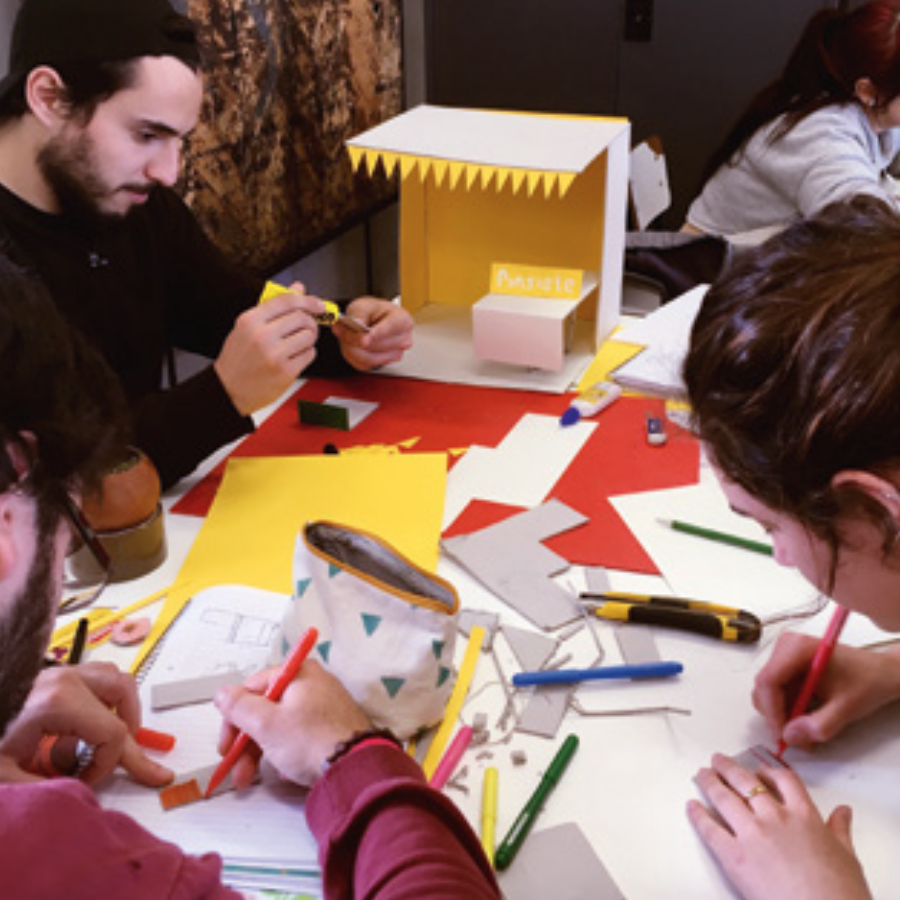Co-design experiences between students of Visual Communication and Vulnerable Economic Units
Main Article Content
Abstract
In the interdisciplinary products seminar (SIP, for its acronym in spanish), we have developed, in recent years, a work method that includes an integrative system of education through experiences of co-design between students and guest entrepreneurs of vulnerable economic units. This development began as a response to the need to address the three functions of university education from the classroom work within a final project level. The context of this experience was a search by the academic team for a way to transcend the transference of disciplinary content to attend the development of a critical and reflective attitude in professionals committed with the sociocultural reality in which they are immersed. The intention was to work in two phases of learning of the students: finding mechanisms that would operate in the generation of a significant learning experience and simultaneously working connected with the real world. Since 2014 until today, the analytical program of the curricular unit has been implemented through increasingly active professional internships.
Article Details
References
Becerra, P. (2011), “Diseño para la economía social y solidaria. Conciencia sustentable, responsabilidad profesional y compromiso político”. En: Gallardo, V. y Scaglia, J. (Coord), Diseñar la Inclusión, Incluir al Diseño: Aportes en torno al territorio de convergencia entre diseños y políticas sociales. Argentina: Ediciones Azzurras.
Dee Fink, L. (2015), "Seminario ¿desea que sus alumnos aprendan más? Diseño de cursos para aprendizaje significativo", febrero, Montevideo.
Dee Fink, L. (2008), Una guía auto-dirigida al diseño de cursos para aprendizaje significativo. Manuscrito no publicado.
Dewey, J.(1953), Democracia y Educación una introducción a la filosofía de la educación. Buenos Aires: Editorial Losada, s.a.
Dinello, R. (2007), Tratado de educación: propuesta pedagógica del nuevo siglo. Montevideo: Grupo Magró.
Diseño & Creatividad IV, Diseño Industrial de la Escuela Universitaria Centro de Diseño. Facultad de Arquitectura, Universidad de la República. Montevideo, Uruguay. Extraído el 3 de agosto de 2016 desde http://dyc4.blogspot.com.uy/2012/08/ conceptos-practica-profesional-2012.html
Fernández Castro, J. (2007), "Investigación proyectual, formar/producir/transferir". En: 6ta jornadas de investigación en arquitectura, Montevideo, Farq 23-27 extraído el 9 de abril de 2015 desde http://www.fadu.edu.uy/publicaciones/ files/2012/05/6as_jornadas_inv.pdf
Meroni, A. (2016), Problemáticas emergentes del diseño, sentando las bases para la innovación social. Montevideo: Colección Conferencias FADU.
Senar, P. (2009), “Hacia un diseño disciplinar inclusivo: Roles sociales del diseño industrial en Argentina”, Otra Economía, Volumen III, Nº 4 semestre de 2009. www.riless.org/otraeconomia
Trilla Bernet, J. (2013), “La educación no formal”, Educación no-formal: Lugar de conocimiento; selección de textos. Montevideo: Dirección de Educación Ministerio de Educación y Cultura.


